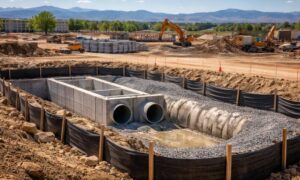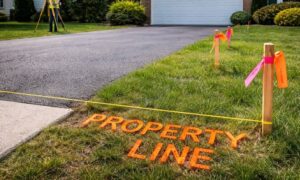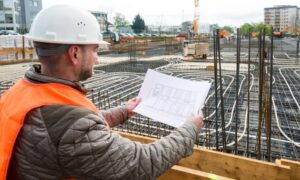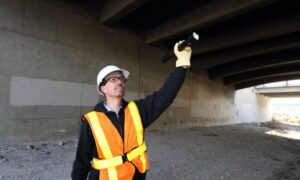
Buying or selling commercial property in Denver involves more than just paperwork and negotiations. One of the most important steps real estate attorneys recommend is getting an ALTA survey—a detailed and standardized survey that offers a complete picture of the property. From legal boundaries to zoning issues, an ALTA survey provides vital insights that protect buyers, lenders, and attorneys from potential legal and financial headaches.
What Is an ALTA Survey and Why Does It Matter?
An ALTA survey, short for American Land Title Association survey, is a comprehensive land survey required in many commercial real estate transactions. Unlike a simple property sketch, it shows:
- Exact property boundaries
- Building and improvement locations
- Encroachments and easements
- Access points and legal rights of way
Real estate attorneys, especially in complex or high-value markets like Denver, rely on ALTA surveys to verify critical details that can affect ownership, use, and title insurance.
1. Ensures Smooth Title Insurance Processing
Title insurance protects buyers and lenders from future ownership disputes. But before a title company can issue that protection, they need certainty about the property’s legal boundaries and conditions.
An ALTA survey helps confirm:
- The precise property lines
- Existing easements or shared access points (like driveways or utility lines)
- Encroachments such as fences or buildings crossing boundaries
Attorneys and title insurers review these details closely to prevent delays or challenges at closing.
2. Detects Boundary Disputes Early
A common problem in real estate deals is discovering after closing that a fence, driveway, or structure crosses property lines. These encroachments can lead to legal disputes and devalue the property.
An ALTA survey identifies:
- Encroachments by neighboring properties
- Misaligned fences or structures
- Areas where boundary lines are unclear or contested
By catching these issues early, real estate attorneys can help their clients resolve them before closing, avoiding costly post-sale disputes.
3. Confirms Zoning Compliance and Land Use Rules
Zoning laws in Denver vary by neighborhood and property type. These rules regulate:
- Permitted building types
- Setbacks from roads and property lines
- Usage restrictions (commercial, industrial, residential, etc.)
An ALTA survey shows where all structures sit relative to zoning setbacks and helps attorneys determine whether the property is:
- Compliant with Denver zoning codes
- Eligible for planned use or development
- Free of violations that could lead to fines or delays
This helps buyers avoid purchasing a property that can’t be used as intended.
4. Reveals Easements and Access Rights
Easements allow others to use a portion of your land for specific purposes—such as utility companies or shared driveways. These legal allowances can affect how the land is used or developed.
An ALTA survey provides visibility into:
- Recorded and visible easements
- Utility lines or infrastructure paths
- Potential use restrictions
Real estate attorneys use this information to ensure their clients are fully aware of third-party rights that could impact their investment.
5. Strengthens Buyer Negotiation Power
An ALTA survey is a valuable tool during negotiations. If issues are uncovered—like a lack of legal access or unrecorded encroachments—attorneys can take action to protect their client’s interests.
Depending on the findings, attorneys might:
- Renegotiate the price
- Request repairs or easement adjustments
- Delay or cancel the deal
This gives the buyer more control and reduces financial risk.
ALTA Surveys Are a Smart Investment in Denver Real Estate
An ALTA survey is much more than a map—it’s a legal safeguard. In a competitive and complex real estate market like Denver, having a detailed survey provides peace of mind and legal clarity. It helps buyers avoid boundary disputes, zoning conflicts, title issues, and other costly surprises.
Whether you’re purchasing, selling, or financing commercial property, getting an ALTA survey is one of the smartest steps you can take to protect your real estate investment.
FAQs
1. What does an ALTA survey include?
An ALTA survey includes detailed measurements of property boundaries, building locations, easements, encroachments, and access points, all standardized under national guidelines.
2. Is an ALTA survey legally required in Denver?
It’s not legally required for every deal, but it is strongly recommended for commercial transactions and often required by lenders and title insurers.
3. How long does an ALTA survey take in Denver?
It typically takes 2–3 weeks, depending on property size, complexity, and access to records.
4. Can an ALTA survey replace a title search?
No. A title search and an ALTA survey complement each other—one checks legal ownership, the other checks physical and legal land features.
5. What’s the difference between an ALTA survey and a boundary survey?
A boundary survey shows property lines only. An ALTA survey includes additional details like easements, improvements, and zoning data—required in commercial deals.
6. Who pays for the ALTA survey in a real estate transaction?
Typically, the buyer pays for the survey, but this can be negotiated in the purchase agreement.





